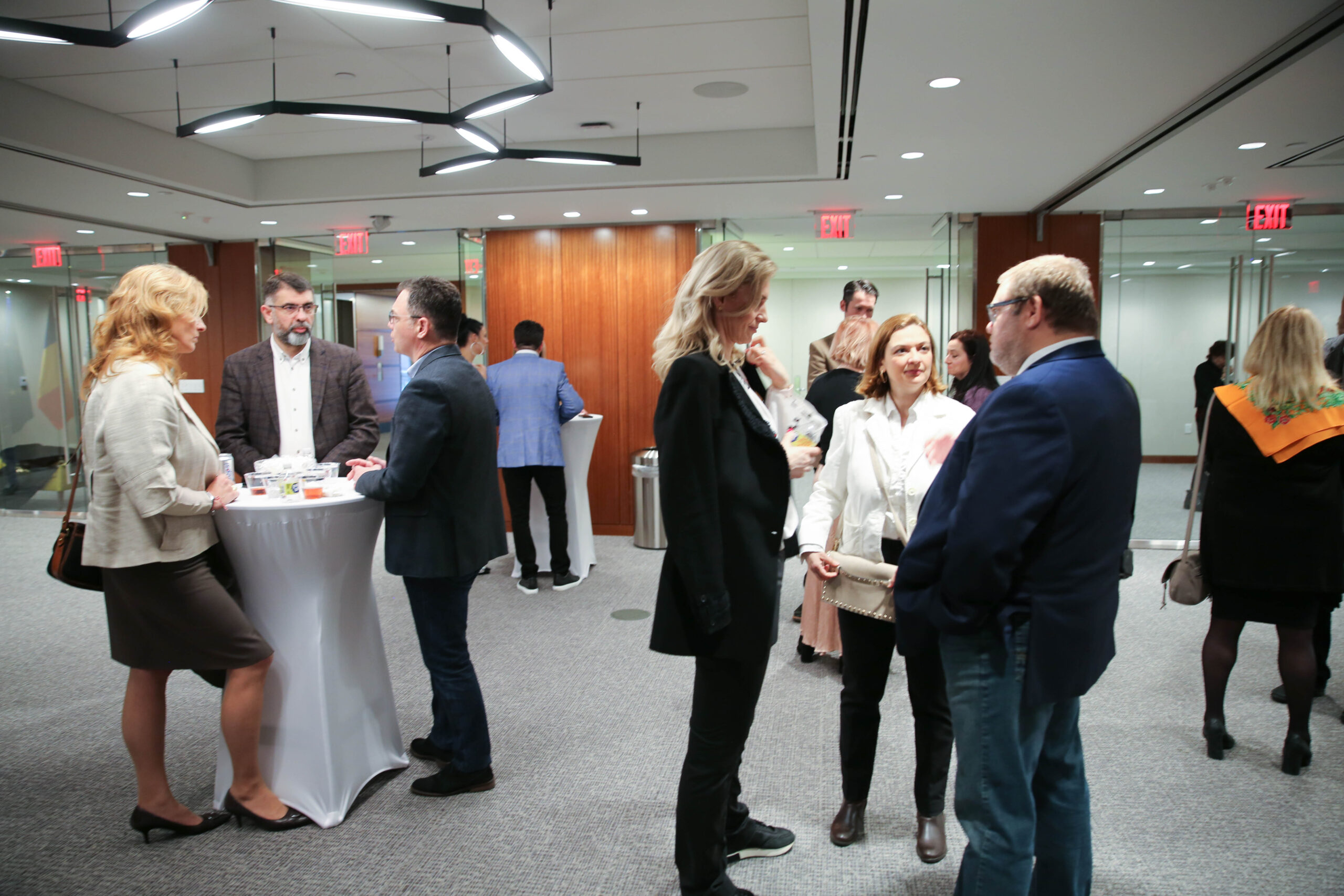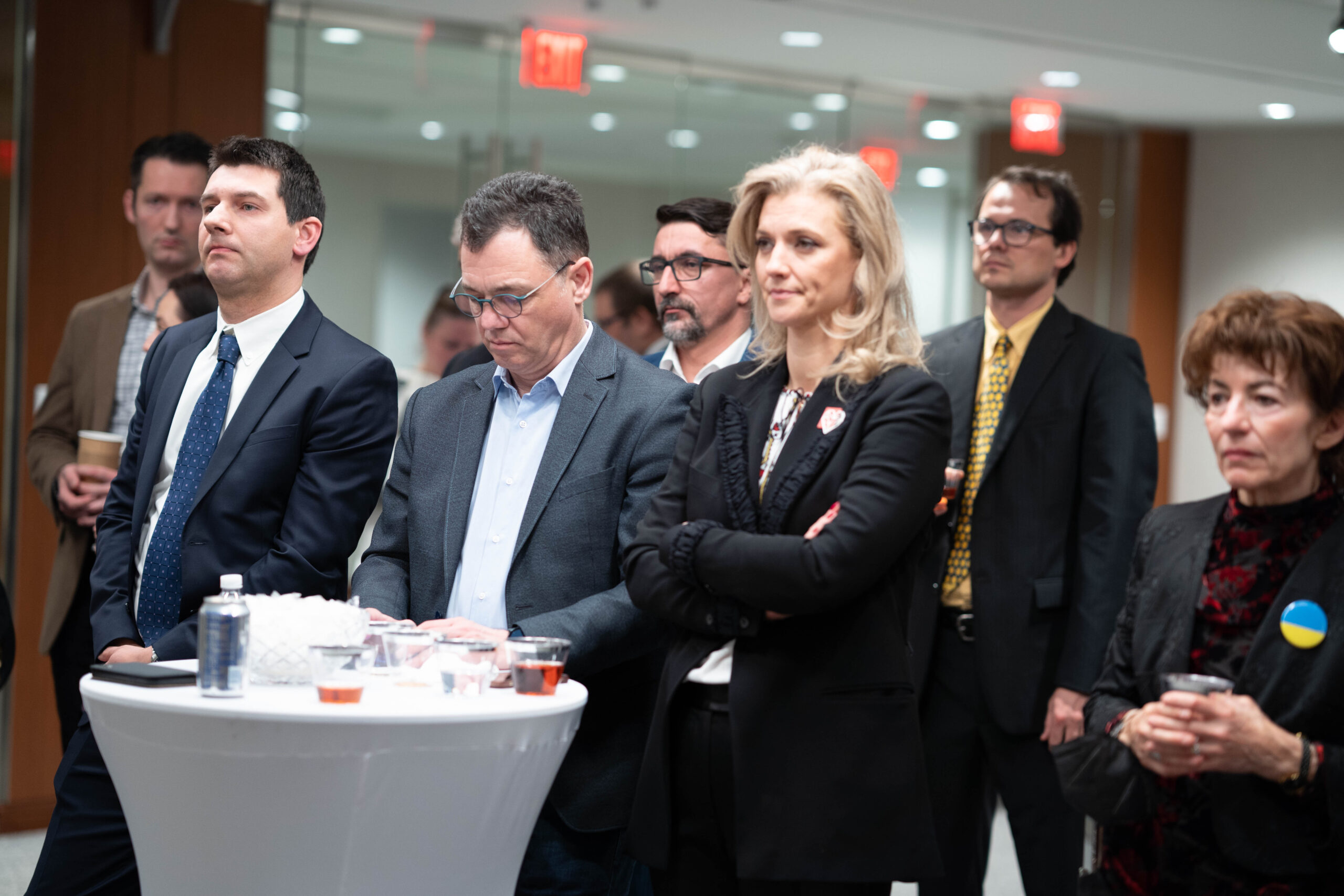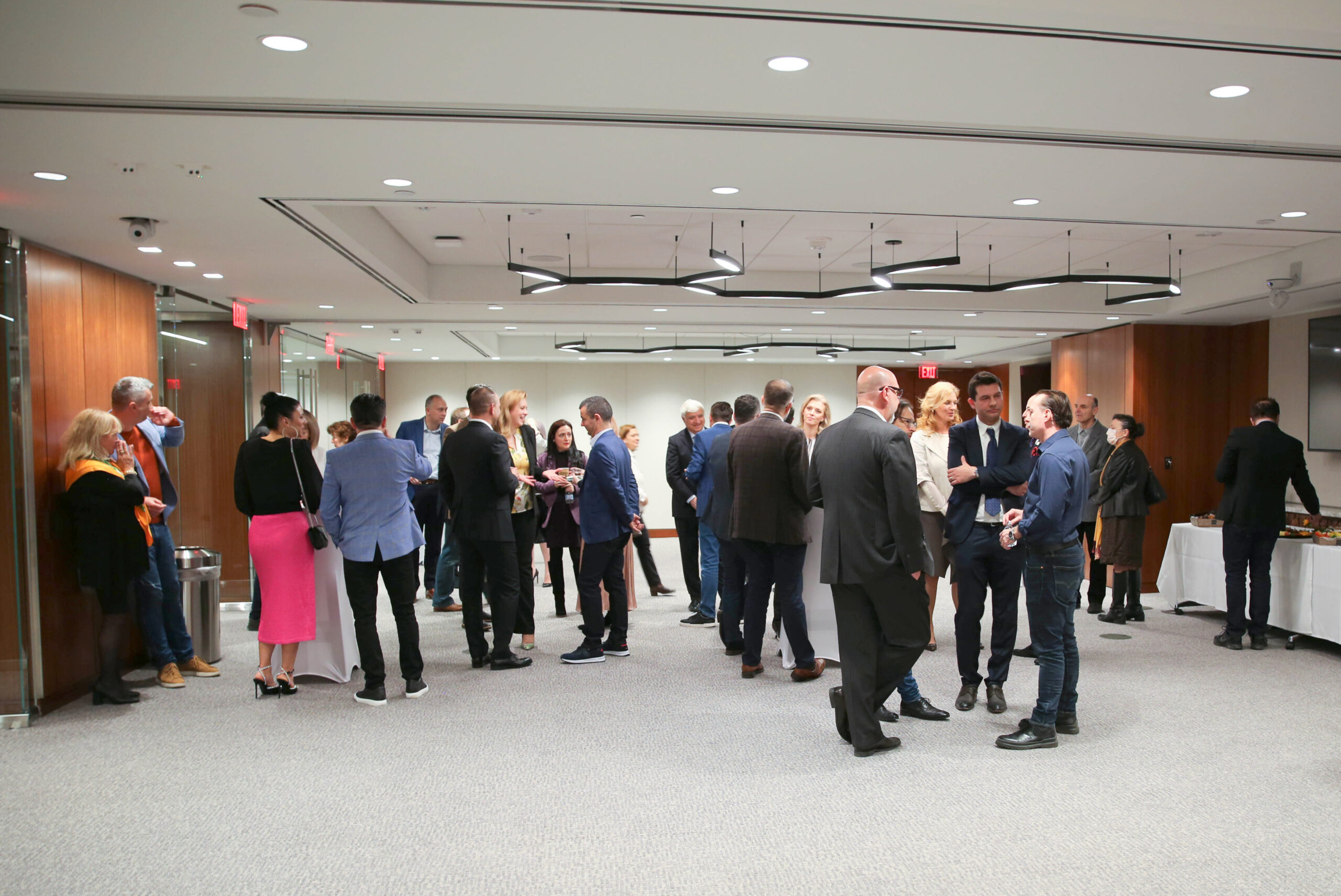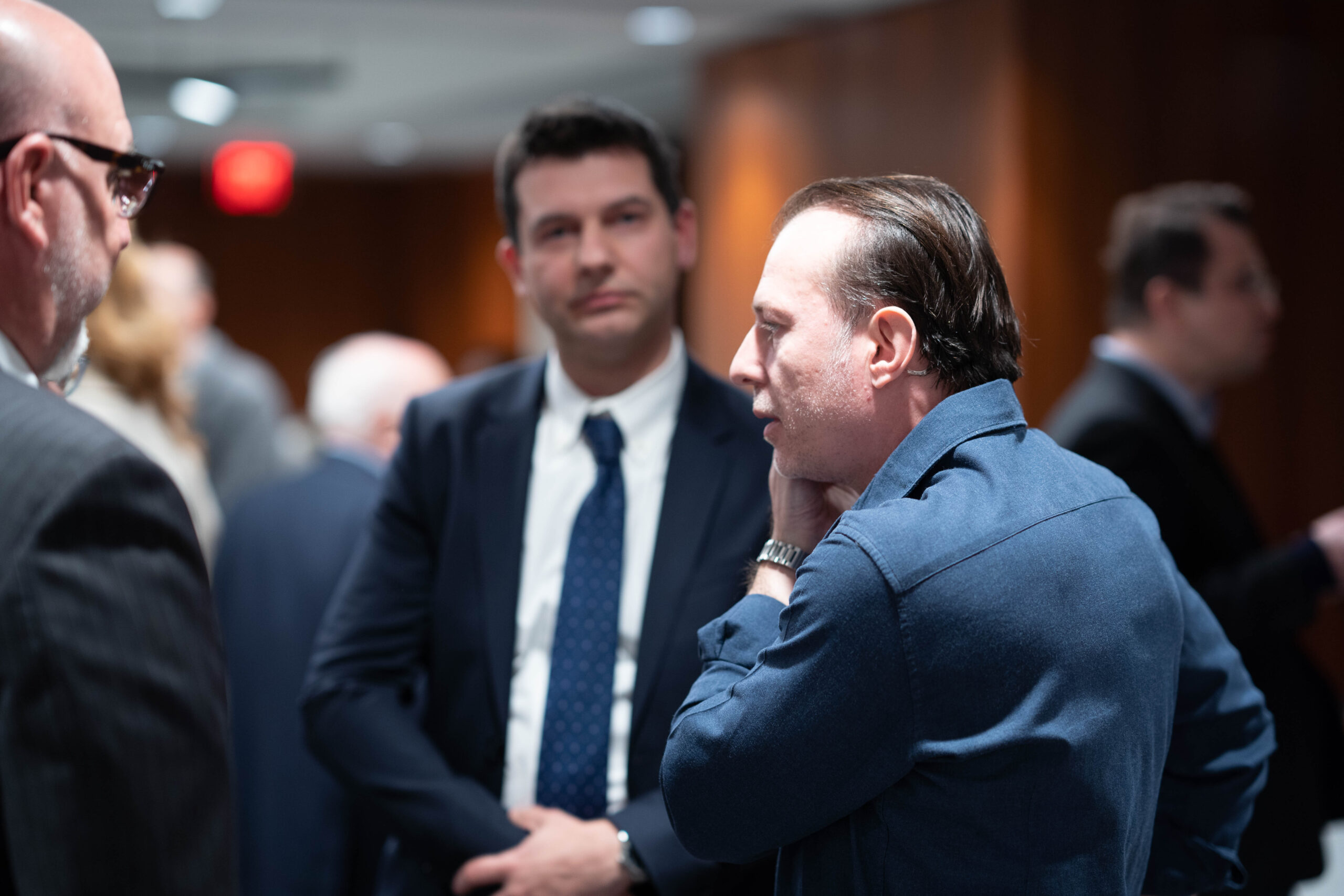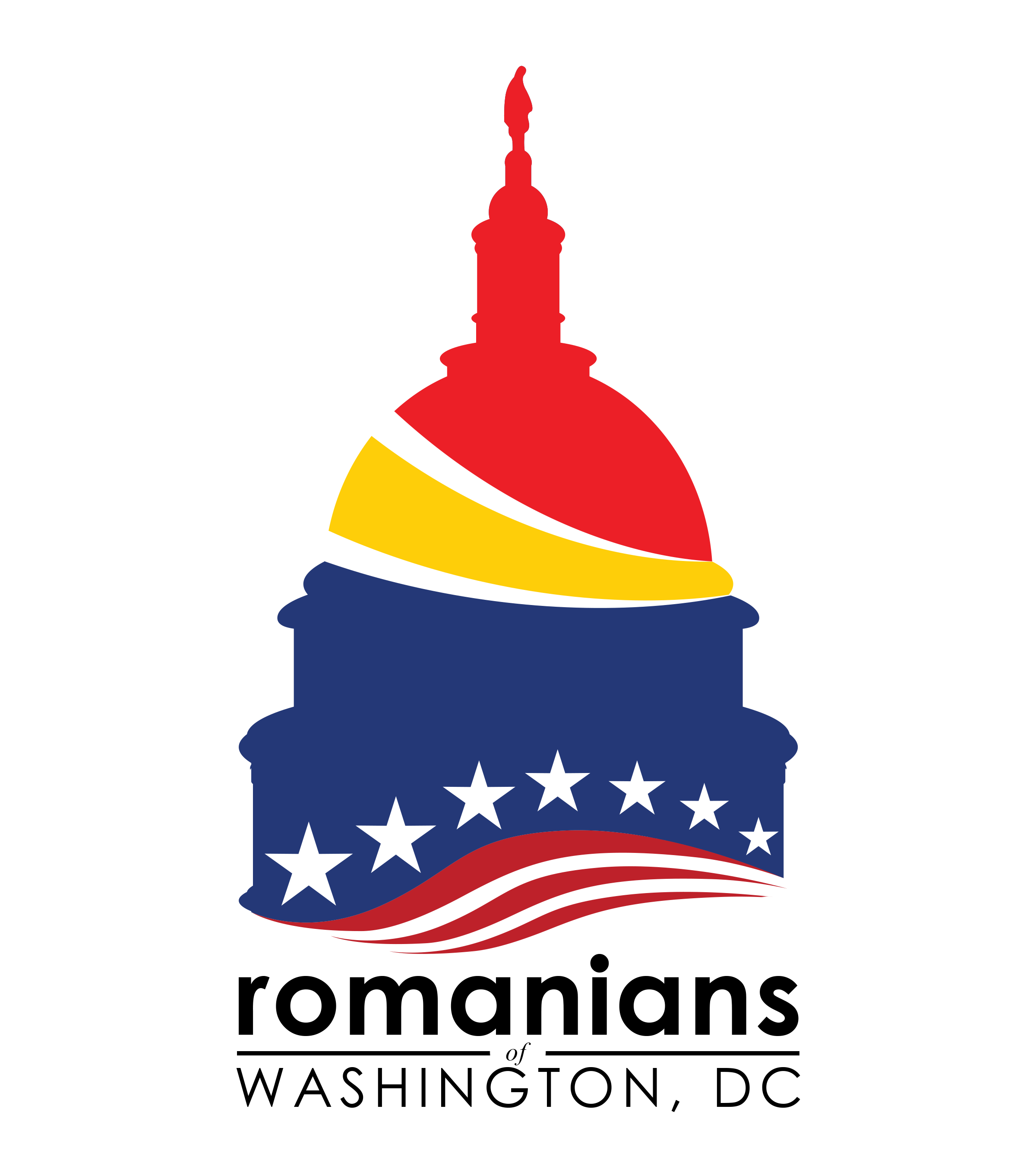This week Romanians of DC had the pleasure of hosting a community event for a high-level delegation from the Romanian Senate let by H.E. Florin Cîțu, the President of the Senate. The event, organized in partnership with the Romanian Embassy in Washington, DC, is part of the organization’s ongoing mission to foster a dialogue with between our Romanian-American community and officials from Romania aimed at supporting a democratic and free future for Romania (and for the Republic of Moldova).
This was the first such visit of a Senate delegation in over 10 years, and it was timed to coincide with the 25th anniversary of the launch of the strategic partnership between Romania and the United States of America. The strategic partnership has been the bedrock of the ever stronger bilateral relationship between the two countries. It’s been serving not only as a vehicle to further enhance key areas of cooperation focusing on the political-military relationship, law-enforcement cooperation, trade and investment opportunities, and energy security, but it also reflecting of the mutual committed to supporting human rights, strengthening the rule of law, fostering cultural and educational ties, and increasing prosperity in both countries.
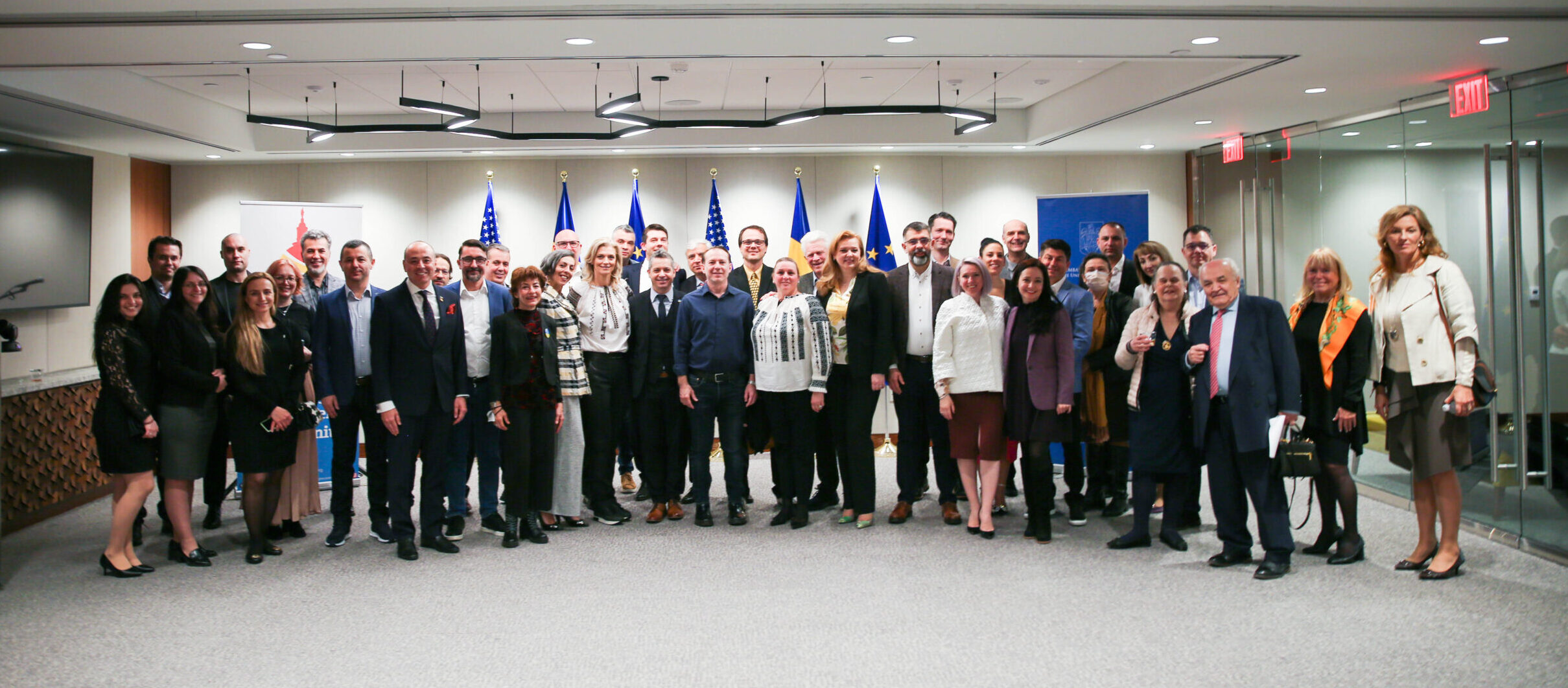
The members of the Romanian Senate delegation reflected the broad spectrum of the political parties represented in the Romanian legislative body and included, in addition to Mr. Cîțu, representatives from both the governing coalition and from the opposition parties. The members of the delegation were: Ms. Alina-Ștefania Gorghiu (PNL), Vice-President of the Senate and also a member of the Committee for Foreign Affairs; Mr. Robert-Marius Cazanciuc (PSD), Vice-President of the Senate; Ms. Roberta-Alma Anastase (PNL), Vice-President of the Committee for Foreign Affairs; Mr. Ion-Narcis Mircescu (USR), Secretary of the Senate; Mr. Ștefan-Radu Oprea, Leader of the Social Democratic Party (PSD) in the Senate; and Mr. Turos Lóránd, the Senate Leader of the Democratic Alliance of Hungarians in Romania (UDMR). The composition of this delegation, as noted by Mr. Cîțu, was yet another example of the prominence given by the Romanian authorities to the strategic relationship with the United States, but it also reflected the consensus that exists amongst all the major political parties in Romania regarding the importance of this alliance.
The President of Romanians of Washington, DC, Mr. Bogdan Banu, opened the formal remarks by welcoming Mr. Cîțu and the other members of the Romanian delegation and thanking them for taking the time, during a very intense and busy few days in the Nation’s Capital, to meet with representatives of the Romanian-American community. Mr. Banu also expressed his thanks to the Romanian Embassy and to Ambassador Andrei Muraru for their partnership and positive cooperation. Mr. Banu briefly talked about the importance of this visit and of its timing during such a tense period in the international arena and highlighted the important role Romania plays nowadays in the region as U.S.’ most trusted ally. This is, in his words, the most crucial moment in the strategic relationship between the two countries, and the fruition of almost three decades of unwavering pro-American and pro-Western foreign policy carried out by successive Romanian governments. His final message to the members of the delegation was to encourage further dialogue between Romanian officials and their American counterparts, at all levels, and not just on security and military cooperation but also on trade, culture and people to people exchanges.
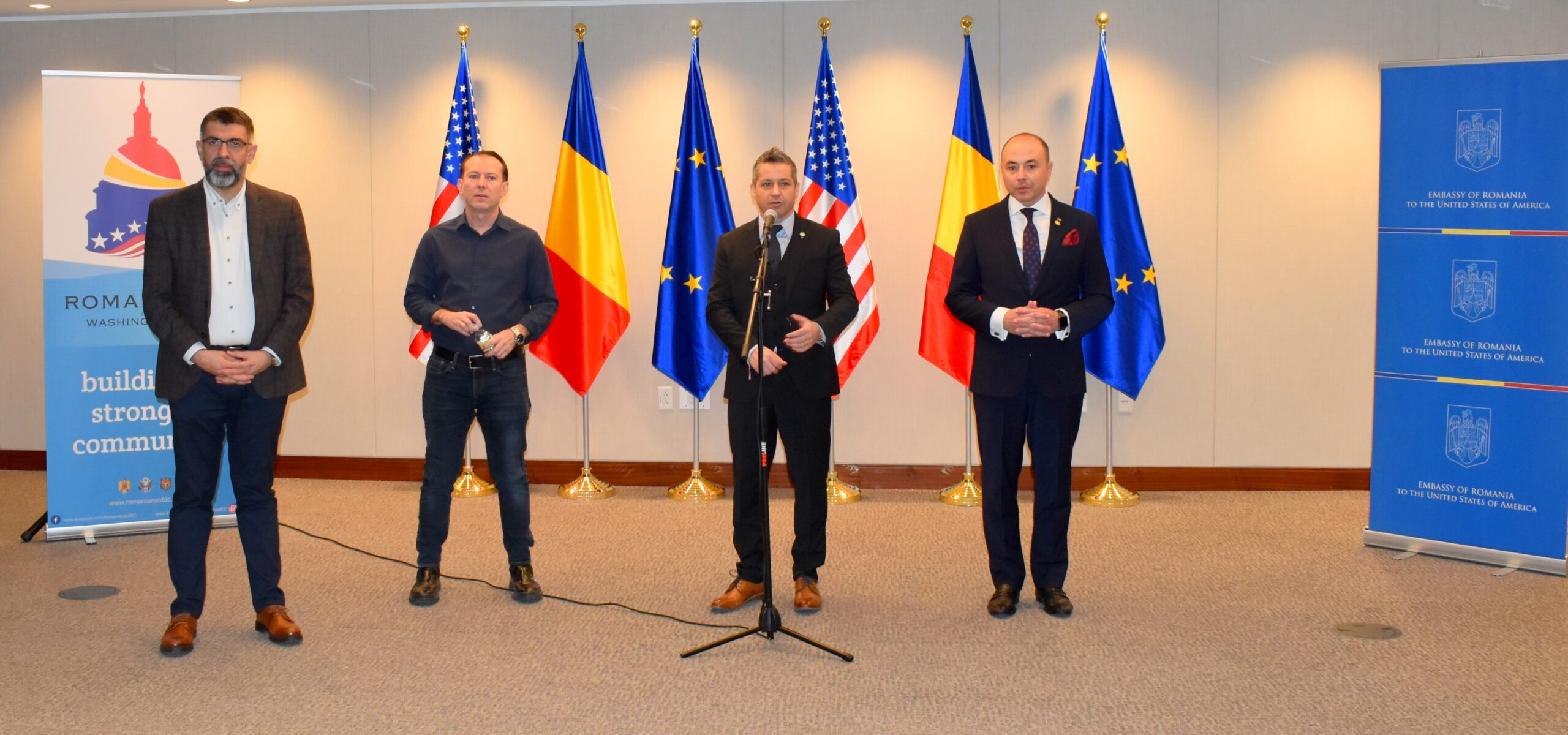
H.E. Andrei Muraru addressed those present highlighting the importance of the moment. He discussed briefly about the priorities of his Mission and the unprecedented mobilization of the Romanian community in the U.S. which was able to raise in a very short period of time, over $200,000 to help with the work carried out on behalf of Ukrainian refugees in Romania. Ambassador Muraru also talked about his ongoing efforts to engage in an unprecedented way with the Romanian American community by visiting them in all the 50 states in which they reside. He concluded his remarks by mentioning the key role the Romanian diaspora in the United States plays in fostering a closer relationship between the two countries. In a later post on Facebook, Ambassador Muraru mentioned that: “Every meeting with Romanians in the United States is a joy and an exercise in mutual motivation. Many of them told me that they are proud of the actions carried out by Romania in the humanitarian field, in support of the refugees from Ukraine and their encouragement can only be an impetus. From here, overseas, Romanians living in American society have made their own contributions to Romania’s efforts during this period, and they are always the best partners we can have in promoting Romania’s interests in the United States.”
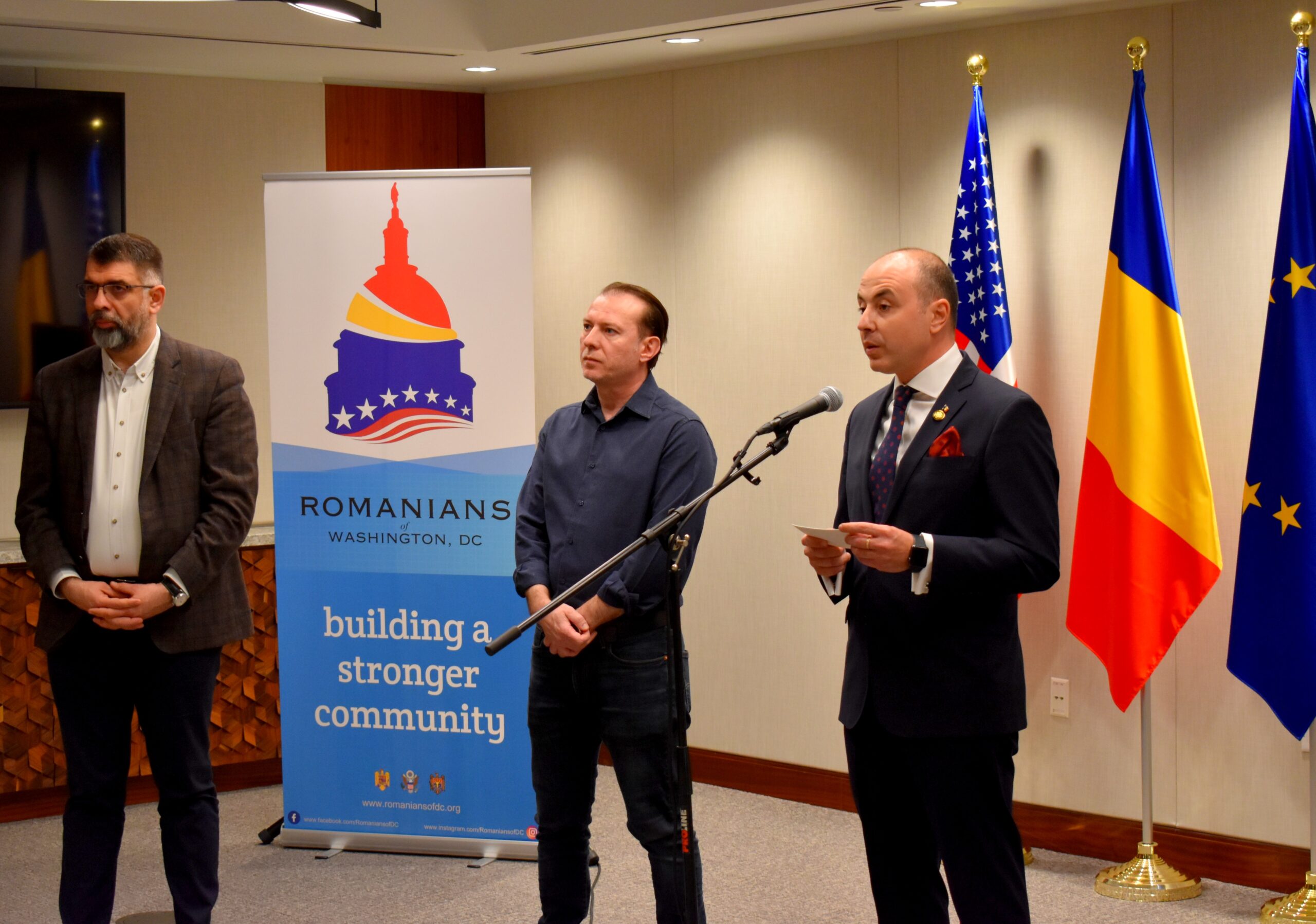
Mr. Cîțu, as head of the Senate Delegation, addressed those present and thanked them for their presence and for their interest in and support for the development of a strong relationship between Romania and the United States. He mentioned the context of the visit – the first in over a decade; its timing – coinciding with both the 25th anniversary of the launch of the Romania – US Strategic Partnership but also the war in Ukraine; and briefly outlined the scope of the visit and the message him and the rest of the delegation had for their American interlocutors.
Mr. Cîțu noted that there were three main topics that were being discussed with the officials they met with, which ranged from members of the U.S. Congress to representatives from various U.S. Departments and Agencies. These were: the inclusion of Romania in the Visa Waiver Program – a message delivered according to Mr. Cîțu at every meeting they had; strengthening the military cooperation between Romania and the U.S. and given the situation in Ukraine, more broadly the eastern flank of the NATO Alliance by providing additional logistical and technical support and increasing joint training and troop deployments; and ensuring European energy security and independence and guaranteeing a key role for Romania in this process.
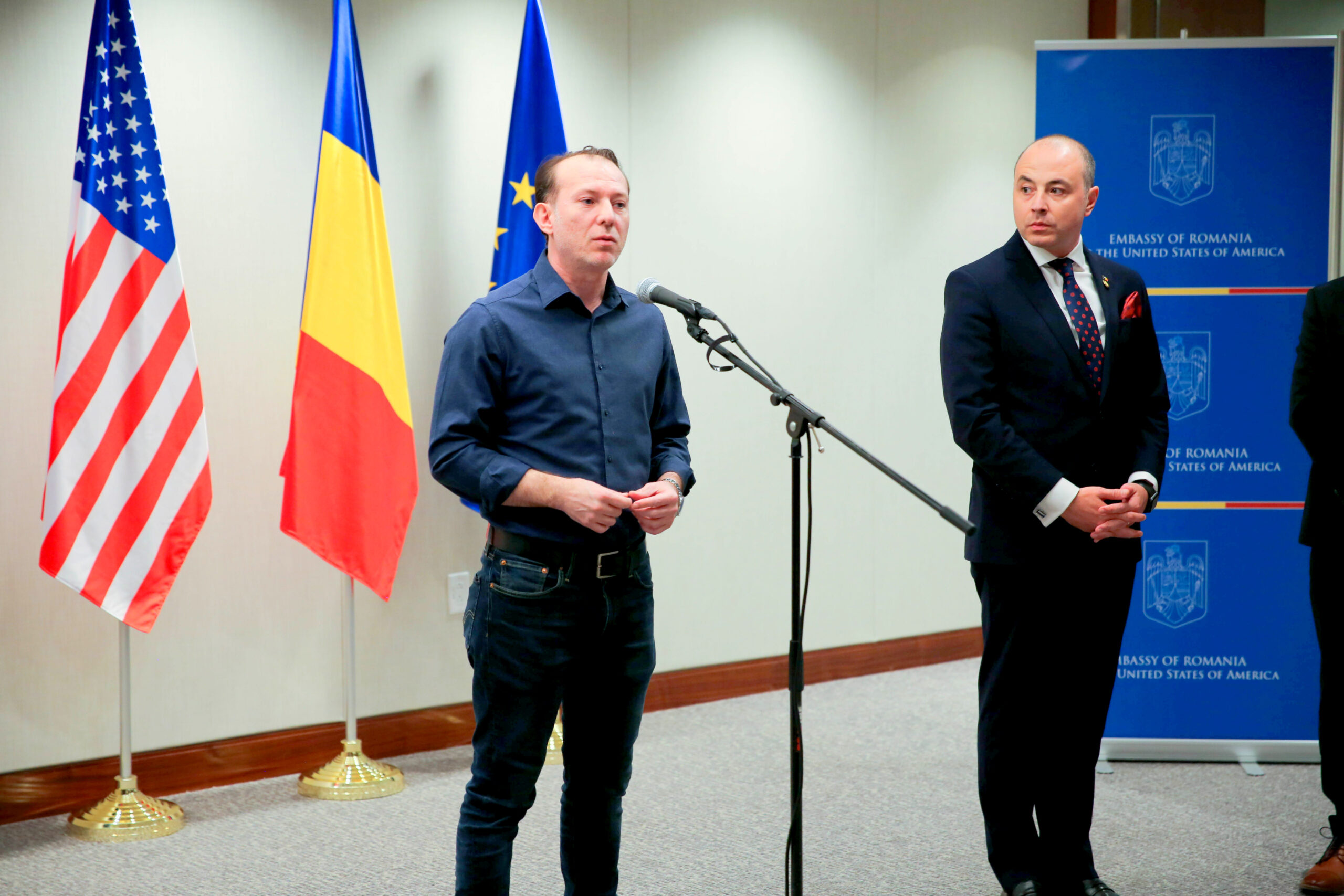
In a subsequent post, Mr. Cîțu noted that “In every country I lived in U.S., New Zealand, or Luxembourg, the first thing I did was to look for the local Romanian community. I was happy to meet with members of the Romanian community in Washington, DC, Maryland and Virginia. There are people who, although they are several thousand miles away from their home country, have remained connected and contribute to the development and modernization of Romania. It is important to develop a strong relationship with the Diaspora especially for the transfer of know-how, through experience and good practices gained abroad. I told them that they are very important in the Strategic Partnership and that all Romanians in the U.S. can contribute to its consolidation and promotion.”
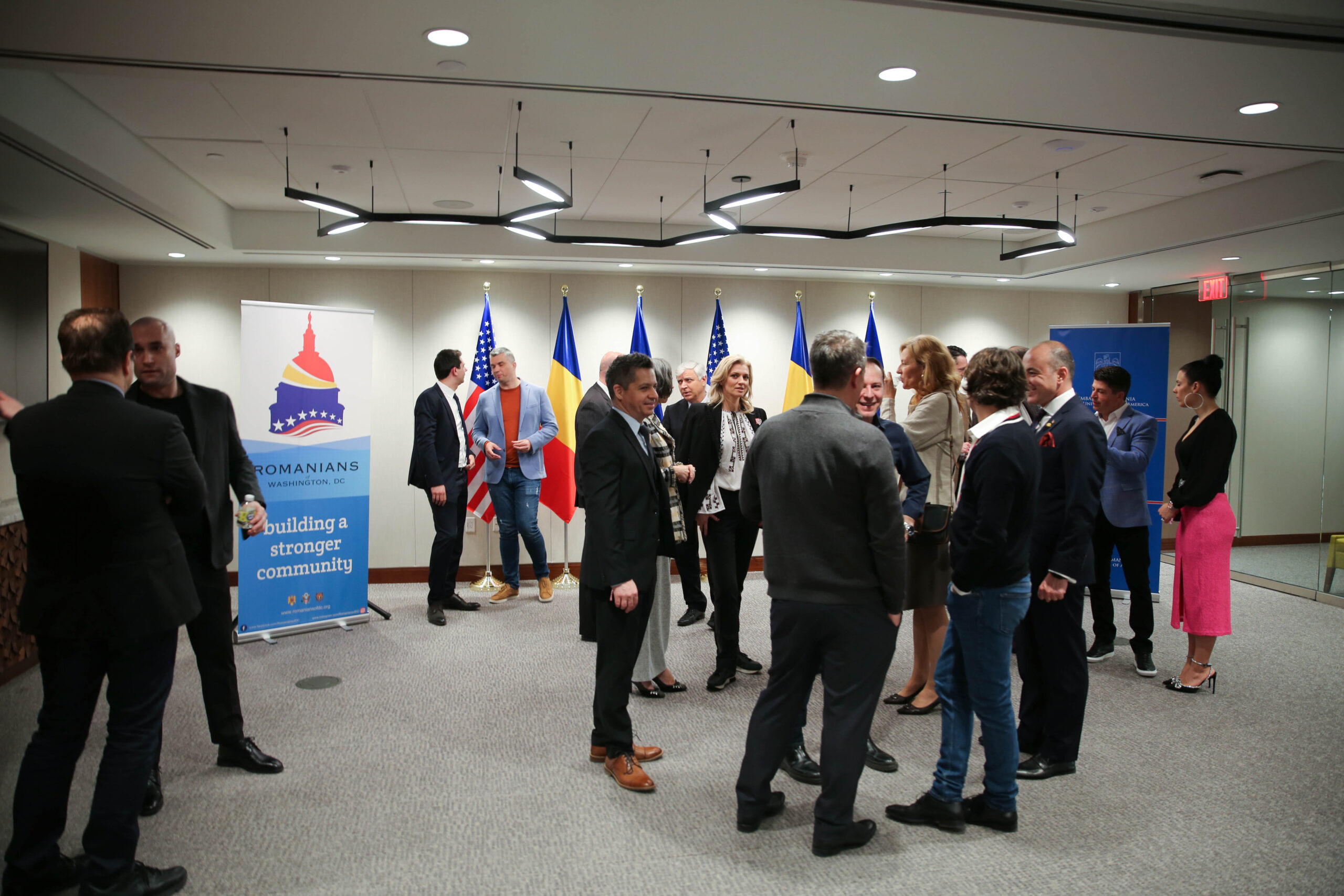
Mr. Cîțu remarks concluded the official part of the event which continued in the format of an unstructured reception providing an opportunity for those in attendance to engage directly with the members of the delegation, exchange ideas and discuss subjects of mutual interest.
